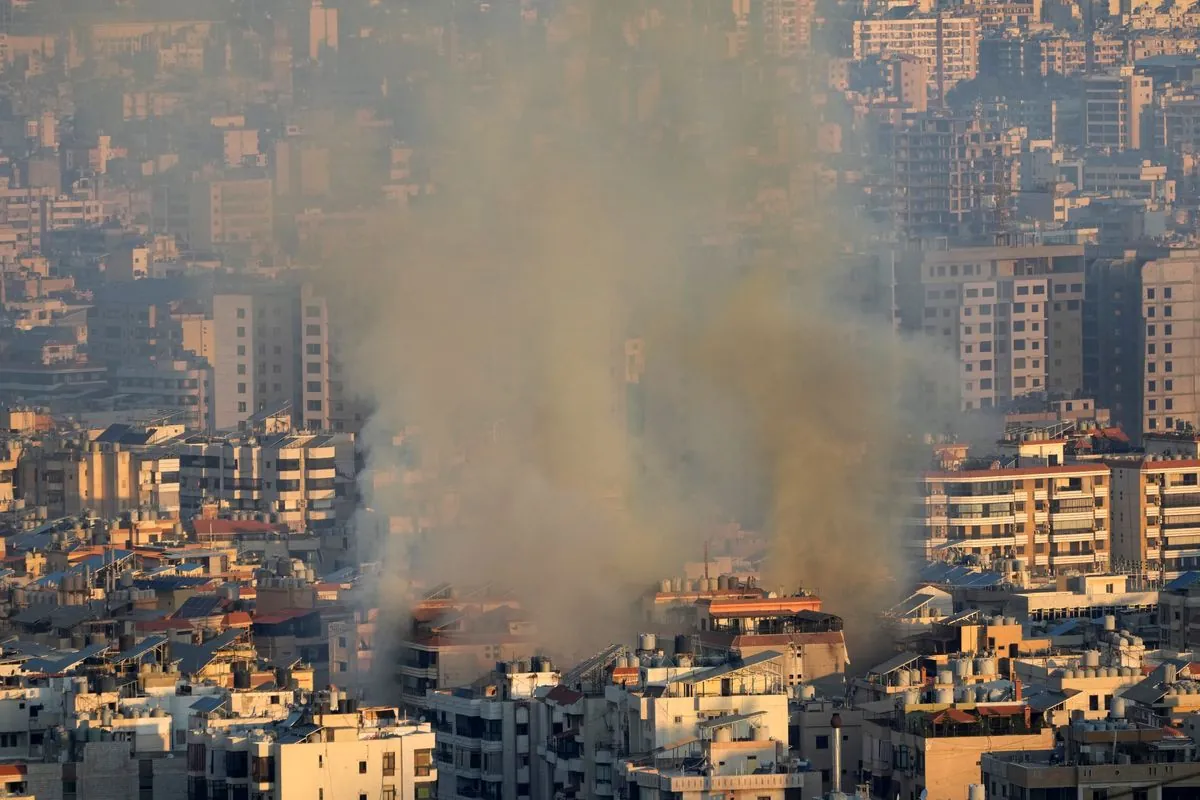In a significant escalation of the ongoing conflict, Israel has intensified its military operations against Hezbollah in Lebanon, following the death of the group's leader, Sayyed Hassan Nasrallah. The Israeli Defense Forces (IDF) have targeted multiple Hezbollah positions, including weapons caches and launch sites, in a campaign that has sent shockwaves through the region.
Hezbollah, founded in 1985 during the Lebanese Civil War, has been a formidable force in Lebanon for decades. The organization, which combines Shia Islamism with Lebanese nationalism, has evolved from its initial goal of resisting Israeli occupation to become a significant political and military entity. With an estimated 25,000-50,000 fighters, Hezbollah possesses a military capability that rivals many nation-states.
The recent Israeli strikes have revealed critical vulnerabilities in Hezbollah's security apparatus, leading to the elimination of several top commanders. This development has raised concerns about the potential for a wider conflict, with implications that could extend beyond Lebanon's borders.
The impact on Lebanese civilians has been severe. According to Lebanon's Health Ministry, over 1,000 people have been killed and 6,000 wounded in the past two weeks. The conflict has displaced approximately one million individuals, representing a fifth of Lebanon's population. In Beirut, families have been forced to seek shelter in public spaces, highlighting the humanitarian crisis unfolding in the country.
"You won't be able to destroy us, whatever you do, however much you bomb, however much you displace people - we will stay here. We won't leave. This is our country and we're staying."
The international community has expressed growing concern over the situation. The United States, while supporting Israel's right to defend itself, has called for a diplomatic resolution to the conflict. John Kirby, White House national security spokesperson, stated, "We believe that a diplomatic path is the right course."
Hezbollah's response to the Israeli offensive has been swift and forceful. The group has continued to launch rocket attacks into northern Israel, leveraging its vast arsenal, which is believed to be larger than that of many countries. This escalation has raised fears of a potential all-out war that could draw in regional powers such as Iran, Hezbollah's primary backer.
The conflict has also highlighted Hezbollah's complex role in Lebanese society. While the group operates an extensive social services network and holds seats in parliament, its critics argue that it has undermined the Lebanese state and unilaterally drawn the country into regional conflicts.
As the situation continues to evolve, the international community remains on high alert. The United Nations World Food Programme has initiated emergency operations to provide aid to those affected by the conflict. Meanwhile, diplomatic efforts to broker a ceasefire have shown little progress, with Hezbollah vowing to continue its attacks until Israel ends its offensive in Gaza.
The current crisis underscores the volatile nature of the region and the potential for localized conflicts to spiral into wider confrontations. As both sides continue to exchange fire, the coming days will be crucial in determining whether diplomacy can prevail over further military escalation.
